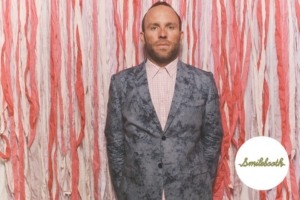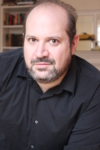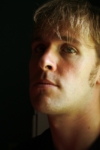 Last winter, we introduced “The Situation in American Writing,” a questionnaire adapted from The Partisan Review that asked questions about literature’s responsibility to address seismic changes in culture, the publishing industry, and the political and geopolitical landscape. That questionnaire, which featured responses from Marilynne Robinson, George Saunders, Victor LaValle, T.C. Boyle, Dana Spiotta, and dozens of other writers was incredibly popular and illustrative of the concerns and preoccupations that writers carry with them when practicing their craft.
Last winter, we introduced “The Situation in American Writing,” a questionnaire adapted from The Partisan Review that asked questions about literature’s responsibility to address seismic changes in culture, the publishing industry, and the political and geopolitical landscape. That questionnaire, which featured responses from Marilynne Robinson, George Saunders, Victor LaValle, T.C. Boyle, Dana Spiotta, and dozens of other writers was incredibly popular and illustrative of the concerns and preoccupations that writers carry with them when practicing their craft.
This year we are interested in the situation of writers, rather than writing, in the subjective experience of writing fiction, rather than fiction’s responsibilities to respond to a rapidly changing world. To this end we are interested in examining the trying intellectual, creative, and emotional labor that is often unacknowledged or effaced in the public presentation of writing. What we’re interested in, to put it another way, is pathos.
This year, we’ve crafted a questionnaire asking writers about the effect writing has had on their physical, emotional, and economic health; on the idea of poverty being a precondition for writing well; on what makes writing truthful to one’s self and to readers. Ultimately, we are interested in the consequences of pursuing writing as a vocation.
Antoine Wilson is the author of two novels: The Interloper, published by Other Press in 2007, and Panorama City, published by Houghton Mifflin Harcourt.
How has your decision to write affected your health? Has it had negative effects on your personal life?
As a direct result of, erm, wrestling with the vicissitudes of publishing, I haven’t had a drink in a couple of years. Alcohol is an excellent stress reliever but terrible for long-term emotional management. Other than that, a spot of lower back pain, maybe.
Writing necessarily takes time, 99% of which is time spent alone. If it’s ever had any negative effects on my personal life, they’ve stemmed from that simple fact. Some people find it difficult to understand why you’re choosing so vehemently to be alone when nobody is forcing you to. This used to cause more friction when I was younger, when social opportunities were at a peak and my cred as a writer was nonexistent.
There is long tradition that links the craft of writing with poverty. Do you think that’s appropriate? Does poverty feel like the most appropriate condition for your practice as a writer?
A need to earn a living sometimes adds pressure to drive people to create and push their limits, but the stress that comes with not knowing where your next meal comes from is enervating, art-wise. I haven’t experienced that kind of poverty. I’ve lived the grad-student level existence, when $16K a year felt like a fortune, but I wasn’t worried about the basics, and I had nothing but time.
Almost everyone I know supplements their writing with teaching or some other kind of work not directly tied to their writing. The key, it seems to me, is to earn enough to buy yourself the freedom to write, without having to do anything that impinges on that freedom.
In a rare 1983 interview the enigmatic and often dour Romanian writer Emil Cioran speaks about only reading Nietzsche’s letters because he became concerned with how untruthful Nietzsche’s published works seemed when read against the miserable condition of his day to day existence (isolated, weak, sickly, certainly not characterized by any sense of vigor). Is there any sense in which the truth of one’s condition should be related to the truth of one’s writing, even if in an oblique sense?
Only in status updates.
I haven’t read Cioran, this sounds cherry-picking to create a paradox. If one’s writing is “true,” then it necessarily reflects the truth of one’s condition, whether or not that condition is obvious to the outside observer.
Are you envious of other people’s success? If so, are you more envious of people’s success in your field or outside of it? Why?
A fellow writer once asked me whose career I’d want to have, writing-wise, out of all our peers. I had no answer. I’d never thought about it in those terms. I guess that means I’m not envious of other people’s successes? I’ve certainly experienced the feeling of wanting my book to get more attention, to reach more readers, but that’s not exactly envy.
As for people outside my field, I don’t know why I’d be envious of them. I wish I could play piano like Brad Meldhau, but that’s such an idle dream it hardly qualifies as envy.
Aside from writing, do you have any other marketable skills? If so, are you ever tempted to cease writing fiction entirely so you can live a more stable life?
I’ve never been tempted to stop writing fiction. If I had been, I would have become a doctor. I like hospitals. And the stability is appealing, too. I mean the emotional stability, of course. A writer’s life is full of moments when you feel you’re starting from absolute scratch. Doctors get to build up a certain kind of expertise and deploy it in a (potentially) supple way. There’s something appealing about experiencing one’s own sense of expertise.
Give one example in which you had high hopes for success (artistic, commercial, or otherwise) but had those hopes dashed.
I’d rather not.
Do you feel like the world owes you a chance to make a living as a writer?
No, and I’d rather not associate with anyone who does.
What is the strongest emotional reaction you have ever elicited from a reader, either in your written work or during a reading? What is the strongest emotional reaction you have ever elicited from yourself during the writing process?
The thing about writing books is that people react to your work privately, long after you’re gone. Even if someone comes up to you and says “This book changed my life,” you’re not really participating in that.
When are you at your most truthful as a writer?
When I’m writing fiction. That sounds glib, but I mean it.
This post may contain affiliate links.







